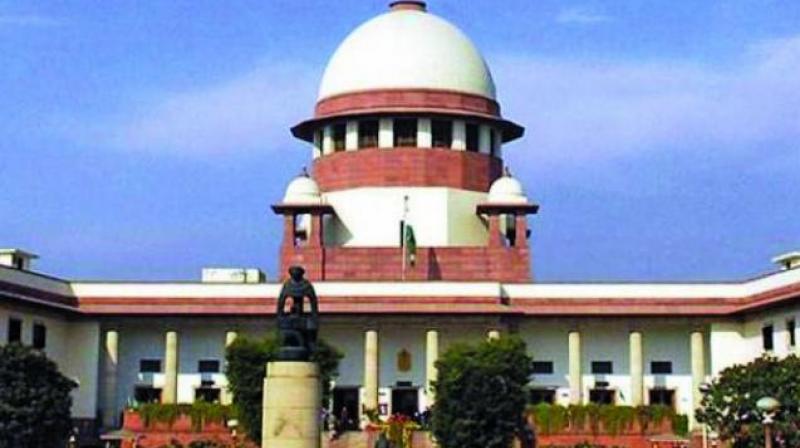Electoral bonds will not withstand scrutiny

A Supreme Court bench headed by the Chief Justice of India ignored government advice to leave the issue of electoral bonds to fund political parties well alone. As the court said, this is “too weighty” a matter to be left to the government of the day to decide and must come under judicial review. There are far too many principles of fairplay, honesty and transparency involved in the funding of political parties beyond the Rs 2,000 cash donation any individual can make and the funding cannot be arbitrarily driven in a direction that appears to have thus far favoured just one party. Considering that 95 per cent of the value of electoral bonds bought may have gone to the ruling party, it has become inescapable that the issue be examined in detail by the judiciary. The important test would be whether these bonds are consistent with the Constitution and whether the system needs to stay at all because it also enables foreign companies based in India to finance politics.
Electoral bonds are one way for an individual or a corporate entity to make political donations without revealing to his banker to which party he is making the bonds over to and the political parties can cash the bonds through accounts known to the Election Commission. The public cannot know from where political parties have got their funding. The government’s chief lawyer was also heard arguing that the voters need not know the source of political funding. The fallacy of this is made apparent when you consider such anonymity in funding can only drive the nation further towards crony capitalism rather than transparency. Curiously, the Election Commission’s stand was diametrically opposite to the government in that it argued before the top court that the right to vote also meant a right to make an informed choice.
The political systems of more evolved democracies are closer to this ideal of accountability of political parties. The thinking of the Supreme Court must veer towards attesting to bring in such transparency. Considering that the two major political fronts are said to be ready, according to informed accounts, to spend about Rs 50,000 crore each to try and swing the 2019 elections, it stands to reason there should be no harm in the voter having access to information of who is backing the parties with money. The political hypocrisy over black money and anonymous donations should not be allowed to be propped up by a cloudy system designed to hide sources of funding and also invite foreign funding. Truth to tell, Indian political parties were bumbling along in their methods of finding finance well enough for there to be any need for such a drastic change as brought about by the electoral bonds scheme and the many changes in laws it necessitated. Better to dismantle this ill-advised scheme that does the very opposite of wiping out the influence of black money in politics.

